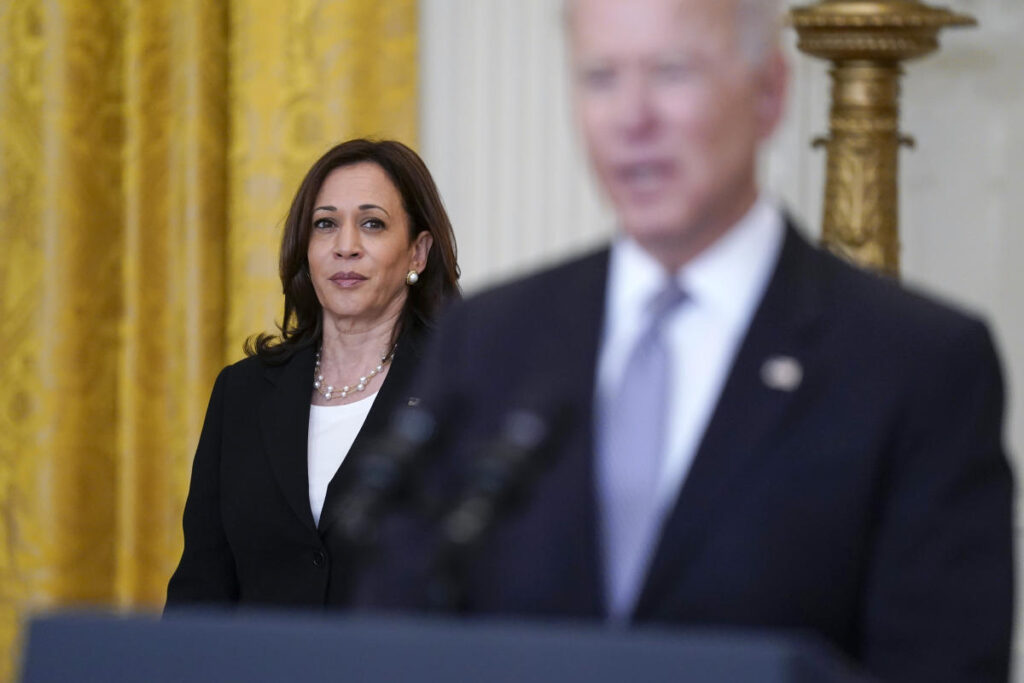In the wake of a critical election year, the electoral defeat of Kamala Harris is a moment that many Democrats trace back to President Joe Biden’s decision to initially pursue reelection through the summer. Although Biden’s name was absent from the ballot, former candidates and party insiders have pointed out that his choices ultimately contributed to Harris’ loss, along with the broader implications for the Democratic Party. Andrew Yang, who previously challenged Biden for the Democratic presidential nomination, expressed frustration, arguing that had Biden opted to step aside earlier in the year, the electoral landscape could have been significantly different, potentially avoiding or altering the current defeat.
Despite leading the country through significant challenges, such as the COVID-19 pandemic, the war in Ukraine, and the passage of a substantial infrastructure bill, Biden’s presidency will likely be overshadowed historically by the return of Donald Trump to the White House. Observers note that any attempts to elevate Biden’s legacy, including policy achievements, are challenged by the fact that he will have presided over just one term. Experts speculate that over time, Biden might be remembered for his accomplishments, but the immediate narrative will likely focus on his failure to secure stability for the Democratic Party against a resurgent Trump.
In the immediate aftermath of the election, Biden maintained a low profile but reached out to fellow Democrats and even the president-elect Trump to discuss potential collaboration, indicating a focus on unity despite the turmoil. In a statement following Harris’ concession, Biden commended her for executing an “historic campaign” amidst difficult circumstances, signaling his continued support for her and his recognition of the broader implications of their collective defeat. However, whispers of discontent emerged from within the party, particularly among Harris’ advisors who expressed that Biden’s earlier recognition of his limitations might have set a different course for the elections.
The mounting concerns over Biden’s age and ability to serve were well documented, with polls indicating that a notable portion of the electorate doubted his competency to serve another term. Following a lackluster debate performance, Biden withdrew from the race in July, with significant pressure from party leaders. Harris then took the mantle, attempting to re-energize the base but struggling to carve out a distinct political platform that would differentiate her from the president. In a revealing moment during an interview, Harris failed to articulate a clear policy divergence from Biden, which critics highlighted as an opportunity missed, allowing the opposition to capitalize on the perception of a unified yet stagnant party message.
Strategists within the Harris campaign noted that a condensed campaign schedule limited the opportunity for Harris to develop her distinct narrative and engage voters in a meaningful dialogue about her vision. They argued that Biden’s earlier departure could have prompted a robust primary process that would allow a fresh candidate to emerge, thereby reinvigorating party hopes and capturing the electorate’s attention. Voter apprehensions regarding economic challenges and immigration policy compounded the difficulties faced by the Democratic campaign, with many feeling the effects of rising costs post-pandemic.
As the aftermath of the election settles, Democrats find themselves grappling with the consequences, contemplating Biden’s role in leaving the party in a precarious position. Matt Bennett, a figure in Democratic circles, portrayed the outcome as one of the most significant setbacks for the party, echoing sentiments that while Harris faced substantial obstacles, the attribution of blame for the loss remained complex and intertwined with Biden’s initial decisions. The ongoing discussions will likely interrogate whether an earlier transition could have salvaged the party’s standing, ultimately marking this moment as a pivotal turning point that may shape the Democratic Party for years to come.

